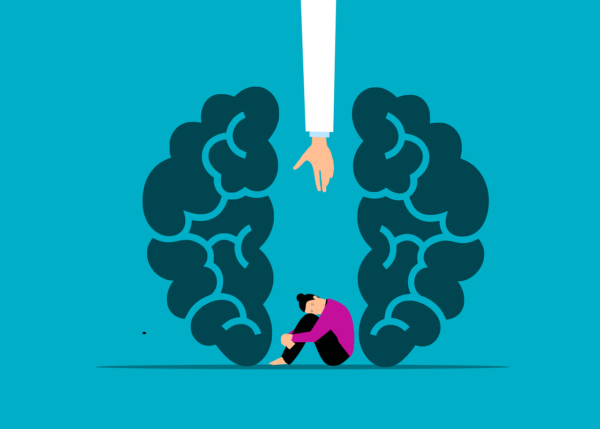The Byway has published a number of articles dealing with mental health recently, particularly focused around anxiety. Anxiety disorders are the most common mental illness. Yearly about 19% of Americans are living with an anxiety disorder, and evidence shows that they are underdiagnosed.
Though anxiety disorders affect so many people all over the country, not everyone knows the ins and outs of living with an anxiety disorder. First of all, what is anxiety? Second, what can you do for somebody you care for who struggles with an anxiety disorder?
What Is Anxiety?
Anxiety in and of itself is not a bad thing. It is a natural response in our chemistry that tells us when we are in danger. You’ve probably heard of the “fight or flight” response that is associated with anxiety, which is a warning of possible danger. Anxiety is part of what keeps us safe.
Unfortunately people with anxiety disorders are living with this “fight or flight” response all the time — even when they are not in physical or emotional danger.
Anxiety disorders include separation anxiety, selective mutism, specific phobias, social anxiety disorder, generalized anxiety disorder, as well as panic disorder and agoraphobia. They often have recurrent symptoms that can be overwhelming and affect a person’s entire life.
According to MedlinePlus, symptoms of anxiety disorders include the following:
- “Anxious thoughts or beliefs that are hard to control. They make you feel restless and tense and interfere with your daily life. They do not go away and can get worse over time.”
- “Physical symptoms, such as a pounding or rapid heartbeat, unexplained aches and pains, dizziness, and shortness of breath”
- “Changes in behavior, such as avoiding everyday activities you used to do”
Though the boundaries between normal anxiety and anxiety disorders can be fuzzy, anxiety that is overwhelming and disrupts a person’s daily life should usually be looked into by a medical professional.
What Can You Do?
Anxiety disorders can be extremely uncomfortable, physically, emotionally, and behaviorally. These kinds of disorders are really not fun for those experiencing them, but they can also be difficult for people watching on the outside.
How can you show love to someone who is often anxious? How can you help them know that everything is all right?
Here are four things you can do to help:
1. Learn about anxiety.
There are so many resources online and in print to help you learn more about anxiety disorders. This article can give you a starting place and point to some great in-depth resources. You can learn about what anxiety is and how to be more understanding.
2. Help them do the things they know are good for them.
A lot of times, people with mental illnesses struggle with little things like getting out of bed, eating regular meals, showering, and exercising. Just getting someone you love to work on healthy habits can make a world of difference.
3. Remind them to breathe.
Anxiety can cause a lot of stress, panic, and fear for the future. Sometimes all a person with anxiety needs is someone to remind them what they can do to calm down. Breathe. Talk through it. Be there, but don’t try to be too rational or problem-solve.
4. Finally, take care of yourself.
Caring for someone with a mental health disorder can be exhausting. Remember that, ultimately, it is their responsibility to care for themselves, and all you can do is help. Take a step back when you are feeling overwhelmed with your loved one’s mental health.
There is no one answer or cure to anxiety disorders, but therapy, medication, mindfulness and a healthy lifestyle can all help the many people living with an anxiety disorder to take charge of their own lives.
If you want to dig deeper into learning about anxiety and anxiety disorders, you can go to this journal article from the National Institute of Mental Health.
– by Abbie Call
Feature image caption: Anxiety disorders affect about 19% of Americans yearly, but not everyone knows how to help. It can be helpful when loved ones of a person with anxiety 1) learn about anxiety, 2) help them with healthy habits, 3) remind them to breathe and also 4) take care of their own well-being. Courtesy Mohamed Hassan.
Read about other mental disorders in Mental Health Awareness Week One: Depressive Disorders.

Abbie Call – Cannonville/Kirksville, Missouri
Abbie Call is a journalist and editor at The Byway. She graduated in 2022 with a bachelor’s degree in editing and publishing from Brigham Young University. Her favorite topics to write about include anything local, Utah’s megadrought, and mental health and meaning in life. In her free time, she enjoys reading, hanging out with family, quilting and hiking.
Find Abbie on Threads @abbieb.call or contact her at abbiecall27@gmail.com.

